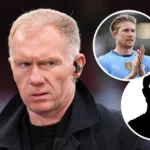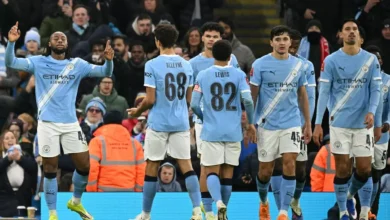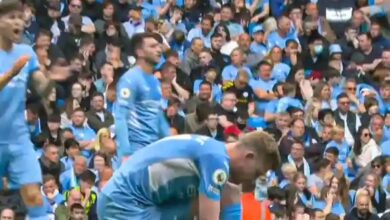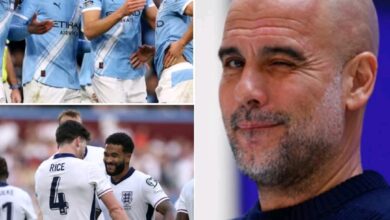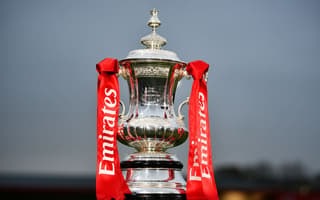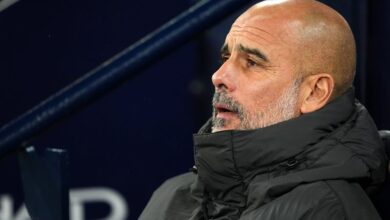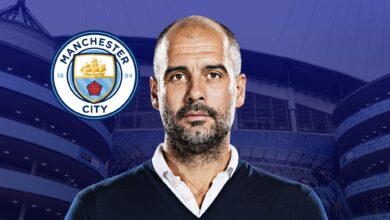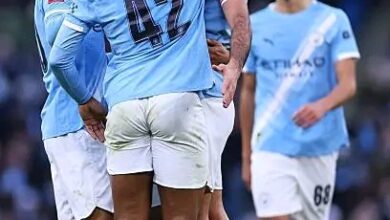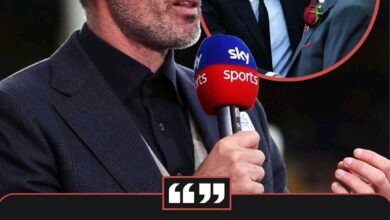Pep Guardiola’s Crossroads: Contract Extension Amid Manchester City’s Greatest Challenge
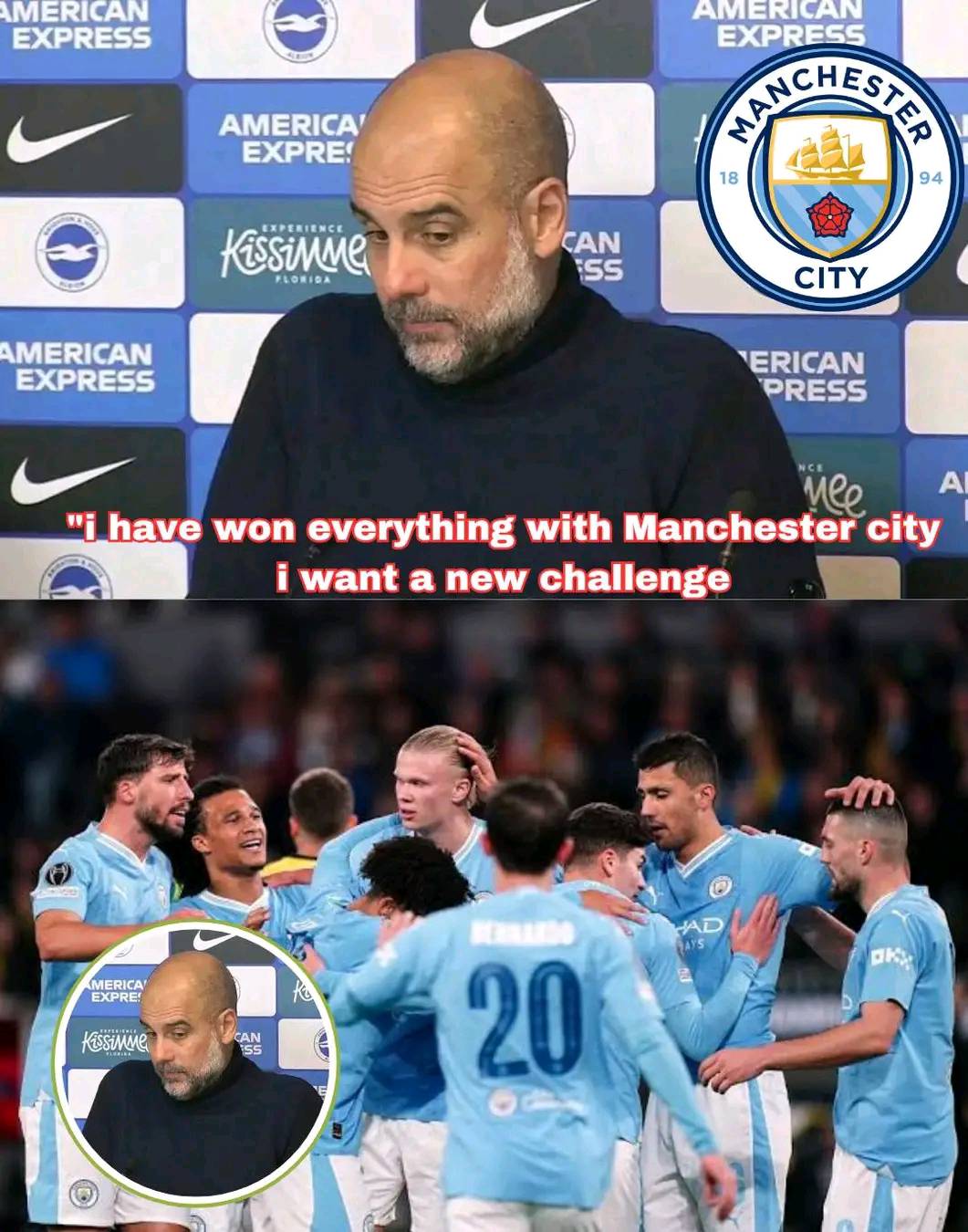
Manchester City’s current predicament would have been unthinkable just months ago. The team that dominated English football for the better part of a decade, collecting Premier League titles with ruthless efficiency, now finds itself in unfamiliar territory. The four consecutive defeats represent more than just a statistical anomaly; they signal a fundamental shift in the dynamics that have defined Guardiola’s era at the club.
The defeats encompass a range of competitions and opponents, highlighting the breadth of City’s struggles. From domestic cup competitions to Champions League fixtures, the team has looked vulnerable in ways that supporters had not witnessed since the early days of Guardiola’s tenure. The psychological impact of such a run cannot be understated, particularly for a squad accustomed to winning as a matter of routine.
This challenging period has tested not only the players’ resilience but also Guardiola’s tactical acumen and motivational abilities. The manager who revolutionized English football with his possession-based philosophy and tactical innovations now faces questions about his methods and their continued effectiveness in an evolving football landscape.
The five-point deficit to Liverpool represents a significant challenge in the context of modern Premier League title races. While such gaps have been overcome in the past, the psychological pressure of chasing rather than leading places additional strain on a squad already dealing with confidence issues. The margin for error has diminished considerably, making every fixture a potential season-defining moment.
Guardiola’s Legacy: Eight Years of Unprecedented Success
To understand the significance of Guardiola’s contract extension, one must first appreciate the extraordinary achievements that have defined his Manchester City tenure. Since arriving in 2016, the Spanish tactician has fundamentally transformed not only the club but English football as a whole.
His six Premier League titles represent a level of domestic dominance rarely seen in the modern era. The manner of these victories, often achieved through record-breaking points totals and goal-scoring feats, has set new standards for excellence in English football. The 2017-18 season, in particular, stands as a testament to Guardiola’s tactical genius, as City became the first team to reach 100 points in a Premier League campaign.
The Champions League triumph in 2023 represented the culmination of years of European heartbreak and tactical evolution. Guardiola’s ability to adapt his approach for knockout competitions, while maintaining his core philosophical principles, demonstrated his growth as a coach and his determination to conquer the one trophy that had eluded him during his City tenure.
Beyond the trophies, Guardiola’s impact on player development has been profound. The transformation of players like John Stones from a promising center-back to a versatile defender capable of playing in midfield exemplifies the manager’s ability to reimagine roles and maximize individual potential. Similarly, the evolution of Kevin De Bruyne into arguably the world’s best attacking midfielder occurred under Guardiola’s guidance.
The tactical innovations introduced during his tenure have influenced football far beyond Manchester. The concept of the false 9, the use of inverted full-backs, and the implementation of positional play have become standard elements of modern football discourse. Coaches across the world have studied and adapted elements of Guardiola’s approach, testament to his influence on the sport’s evolution.
The Begiristain Factor: Navigating Change at the Top
The departure of Txiki Begiristain as director of football represents a significant variable in Guardiola’s decision-making process. The long-standing relationship between the two Catalans, dating back to their time together at Barcelona, has been instrumental in City’s transfer strategy and overall football philosophy.
Begiristain’s role in identifying and securing the players who have defined City’s success cannot be overstated. His ability to understand and implement Guardiola’s vision in the transfer market has been crucial to maintaining tactical coherence across multiple seasons. The seamless integration of new signings into City’s system has been a hallmark of their success, reflecting the close collaboration between manager and sporting director.
The transition to a new sporting director will test City’s institutional knowledge and continuity. While the club has developed sophisticated scouting networks and analytical capabilities, the personal relationship and shared vision between Guardiola and Begiristain have been irreplaceable assets. The incoming director will need to quickly understand not only the manager’s tactical preferences but also his long-term vision for the club’s development.
This institutional change adds another layer of complexity to Guardiola’s current challenges. Navigating a difficult period while simultaneously adapting to new internal dynamics requires exceptional leadership and communication skills. The success of this transition will likely influence both the immediate results and the long-term trajectory of the club.
The Contract Extension: Strategic Implications
The reported “99%” finalization of Guardiola’s contract extension represents a calculated risk by Manchester City’s ownership. In extending the manager’s tenure during a period of uncertainty, the club demonstrates confidence in his ability to overcome current challenges while maintaining their long-term vision.
From a strategic perspective, the extension provides stability during a potentially turbulent period. The football world is littered with examples of clubs making reactive decisions during difficult spells, often to their long-term detriment. By committing to Guardiola for another year, City signal their belief in the processes and philosophies that have brought unprecedented success.
The one-year duration of the extension reflects the pragmatic approach of both parties. For Guardiola, it provides the opportunity to address current issues without the pressure of long-term commitment. For the club, it offers continuity while maintaining flexibility for future planning. This approach acknowledges the fluid nature of modern football while respecting the achievements of the past.
The financial implications of the extension are significant but manageable for a club of City’s resources. Guardiola’s salary, while substantial, represents a small fraction of the club’s overall expenditure. The potential returns, both sporting and commercial, justify the investment in retaining one of world football’s most successful managers.
Tactical Evolution: Adapting to New Challenges
The current struggles have highlighted the need for tactical evolution within Guardiola’s system. The possession-based approach that has defined his tenure faces new challenges from increasingly sophisticated defensive systems and more athletic, high-pressing opponents.
The effectiveness of City’s traditional approach has been questioned by some observers, who argue that the football landscape has evolved to counter Guardiola’s methods. The rise of counter-attacking systems, the increased athleticism of players, and the tactical sophistication of opponents have all contributed to the challenges facing City’s approach.
However, history suggests that dismissing Guardiola’s tactical intelligence would be premature. Throughout his career, the Spanish manager has demonstrated an ability to adapt and evolve his methods in response to new challenges. The solutions to City’s current problems may require modifications to established patterns rather than wholesale changes to core principles.
The integration of new players and the development of existing squad members will be crucial to this tactical evolution. The emergence of young talents and the adaptation of established stars to new roles could provide the fresh impetus needed to overcome current difficulties. Guardiola’s track record of player development suggests that solutions may already exist within the current squad.
The Liverpool Challenge: Klopp’s Successor and New Dynamics
The five-point deficit to Liverpool represents more than just a statistical challenge; it symbolizes the changing dynamics of English football’s elite level. Under Arne Slot, Liverpool has maintained the high-intensity approach established by Jürgen Klopp while introducing tactical refinements that have proven effective against City’s traditional methods.
The psychological aspect of trailing Liverpool adds complexity to City’s challenge. The historical rivalry between the clubs, intensified during the Klopp era, has created additional pressure for City to respond. The expectation of domestic dominance, established during Guardiola’s successful years, makes the current deficit particularly challenging to accept.
Liverpool’s current form suggests that City’s title challenge will require sustained excellence rather than hoping for their rivals’ decline. The Merseyside club’s depth and tactical flexibility under Slot indicate that this season’s title race may be more competitive than those of recent years. This reality demands a response from City that goes beyond short-term fixes.
The head-to-head encounters between the clubs this season will likely prove decisive in determining the championship outcome. City’s ability to rise to these occasions, particularly given their recent struggles, will test both the players’ character and Guardiola’s tactical acumen. These fixtures often provide the context for season-defining moments.
Squad Dynamics: Managing Expectations and Confidence
The current difficult period has inevitably impacted squad dynamics and individual confidence levels. Players who have become accustomed to winning regularly now face the challenge of maintaining belief during a period of uncertainty. The psychological management of the squad becomes as important as tactical preparation.
Key players like Erling Haaland, Kevin De Bruyne, and Rodri have experienced varying degrees of form and fitness issues that have contributed to the team’s struggles. The reliance on these individuals for crucial moments has perhaps become too pronounced, highlighting the need for greater collective responsibility and emerging leaders within the squad.
The integration of newer signings and the development of academy products provide potential solutions to current challenges. Players like Rico Lewis, Phil Foden, and Oscar Bobb represent the future of the club while potentially offering fresh perspectives on established tactical patterns. Their continued development under Guardiola’s guidance will be crucial to both short-term recovery and long-term success.
The experienced players’ response to adversity will define not only this season’s outcomes but also the squad’s character moving forward. The ability to maintain standards during difficult periods often separates truly elite teams from those that achieve temporary success. City’s response to their current challenges will provide insights into their long-term prospects.
European Ambitions: Champions League Considerations
City’s European ambitions add another dimension to the current challenges facing Guardiola. The club’s desire to establish themselves as a consistent Champions League contender requires sustained domestic excellence as well as tactical adaptability for European competition.
The upcoming fixture against Feyenoord represents an opportunity for immediate improvement and confidence building. European competition often provides a different context that can help teams rediscover their best form. The tactical adjustments required for European matches may also benefit City’s domestic approach.
The experience gained from their 2023 Champions League triumph provides valuable context for navigating current difficulties. The knowledge that they can compete at the highest level, even during challenging periods, offers both players and management confidence in their ability to overcome current obstacles.
The financial and prestige benefits of European success make these competitions particularly important for City’s overall objectives. The revenue generated from deep Champions League runs supports the club’s financial sustainability while enhancing their global profile and commercial appeal.
The Tottenham Test: Immediate Challenges
The upcoming Premier League clash against Tottenham represents more than just another fixture; it provides an immediate opportunity for City to demonstrate their response to recent difficulties. Tottenham’s own inconsistencies this season create the potential for a confidence-boosting result that could catalyze a broader recovery.
The tactical matchup between Guardiola and Ange Postecoglou offers intriguing possibilities. Both managers favor attacking, possession-based football, but their implementations differ significantly. The ability to impose their preferred style while neutralizing Tottenham’s threats will test City’s current tactical clarity and execution.
The psychological importance of avoiding a fifth consecutive defeat cannot be understated. While results ultimately matter most, the momentum and confidence gained from ending the losing streak could prove as valuable as the points themselves. The squad’s response to this pressure will indicate their mental resilience.
Individual performances in this fixture will be scrutinized for signs of recovery or continued struggles. Key players will need to demonstrate their commitment to Guardiola’s methods while showing the quality that has defined their successful periods. The collective response will provide insights into the squad’s current state.
Future Planning: The 2025-26 Vision
The contract extension through 2025-26 provides City with the opportunity to plan beyond immediate challenges toward longer-term objectives. The additional year allows for more comprehensive squad development and tactical evolution while maintaining institutional continuity.
The transfer market implications of Guardiola’s extended tenure are significant. Players and agents will view City’s commitment to their manager as a positive signal about the club’s direction and stability. This continuity may prove advantageous in negotiations for both new signings and contract renewals with existing players.
The development of young players and academy graduates takes on added importance with the extended timeline. Guardiola’s track record of nurturing talent suggests that several current prospects may emerge as key contributors during the extended contract period. This organic development often proves more sustainable than expensive external acquisitions.
The tactical evolution required to address current challenges will likely continue throughout the extended contract period. The additional time provides opportunities for more gradual implementation of changes while maintaining the core principles that have defined City’s success.
The Broader Context: English Football’s Evolution
City’s current challenges occur within the broader context of English football’s continued evolution. The increasing tactical sophistication of opponents, the financial resources available to rival clubs, and the physical demands of modern football all contribute to the complexity of sustained success.
The success of other Premier League clubs in European competition has raised the overall standard of English football. The tactical knowledge and player quality throughout the league have increased significantly, making every fixture more challenging than in previous eras. This evolution requires constant adaptation from even the most successful teams.
The financial regulations governing English football continue to evolve, creating new constraints and opportunities for clubs like City. The ability to navigate these regulations while maintaining competitive advantages will be crucial to long-term success. Guardiola’s extended tenure provides stability during these regulatory changes.
The global nature of modern football means that City’s challenges are observed and analyzed worldwide. The club’s response to current difficulties will influence their international reputation and commercial appeal. The successful navigation of this period could enhance their global profile significantly.
Conclusion: A Defining Moment
Pep Guardiola’s contract extension represents more than just a managerial decision; it embodies Manchester City’s commitment to their established philosophy during a period of unprecedented challenge. The decision to extend his tenure during the most difficult spell of his City career demonstrates remarkable faith in his ability to overcome current obstacles.
The next eighteen months will likely define how this period is remembered in the broader context of Guardiola’s legacy. The ability to navigate current challenges while maintaining City’s competitive edge would represent perhaps his greatest achievement as a manager. The alternative – continued struggles leading to an underwhelming end to his tenure – seems unlikely given his track record but remains a possibility.
The contract extension provides the time and stability necessary for thoughtful solutions to current problems. Rather than reactive changes driven by short-term pressures, City can implement measured responses that address underlying issues while preserving successful elements of their approach.
The footballing world will watch with great interest as one of the sport’s greatest managers attempts to solve the puzzle of his current challenges. The outcome will not only determine City’s immediate future but also provide insights into the evolution of tactical football and the requirements for sustained success in the modern era.
As Guardiola prepares his team for the challenges ahead, the extension represents both an opportunity and a responsibility. The chance to add to his already remarkable legacy exists alongside the pressure to justify the continued faith placed in his methods. The resolution of this tension will define not only the remainder of his City tenure but also his standing among football’s greatest managers.




